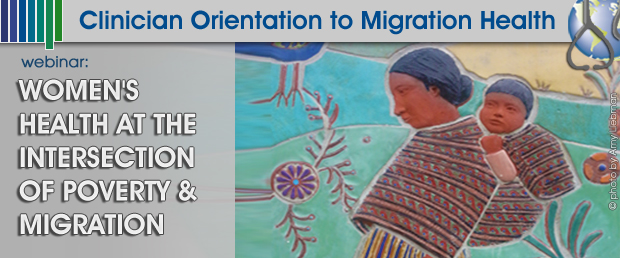Part 4 of the 6 webinar series: Essential Clinical Issues in Migration Health
DATE RECORDED: May 14, 2014
PRESENTED BY: Candace Kugel, FNP, CNM and Megan Danielson, CNM
To receive CME* or CNE credit after viewing any of these webinars you must do the following:
|
Migrant women face significant disparities with an additional layer of complexity and require different intervention strategies. Among them are reproductive health, pregnancy and childbirth, sexual and intimate partner violence, and cancers that disproportionately affect women, including cervical and breast cancer. Women often face environmental and occupational health exposures both in the home and in the workplace that heighten health risks. This session will provide a follow-up to the July 2013 presentation “Women’s Health at the Intersection of Poverty and Migration” that was part of our Clinician Orientation to Migration Health webinar series. During this presentation Candace Kugel, FNP, CNM, and Meagan Danielson, CNM will discuss quality improvement and health care services for migrant women. The HRSA clinical performance measures related to women’s health will be reviewed as well as resources and best practices for improving the health of migrant women.
Learning Objectives:
- Describe strategies to address clinical core measures that relate to women’s health .
- Discuss case studies that assist participants in understanding how creative collaborations and models of care can improve health outcomes for migrant women.
- Participants will be able to access clinical resources for working with female migrant patients.
FURTHER READING |
Low Birth Weight Resources
Cervical Cancer Resources
Other Resources
|
